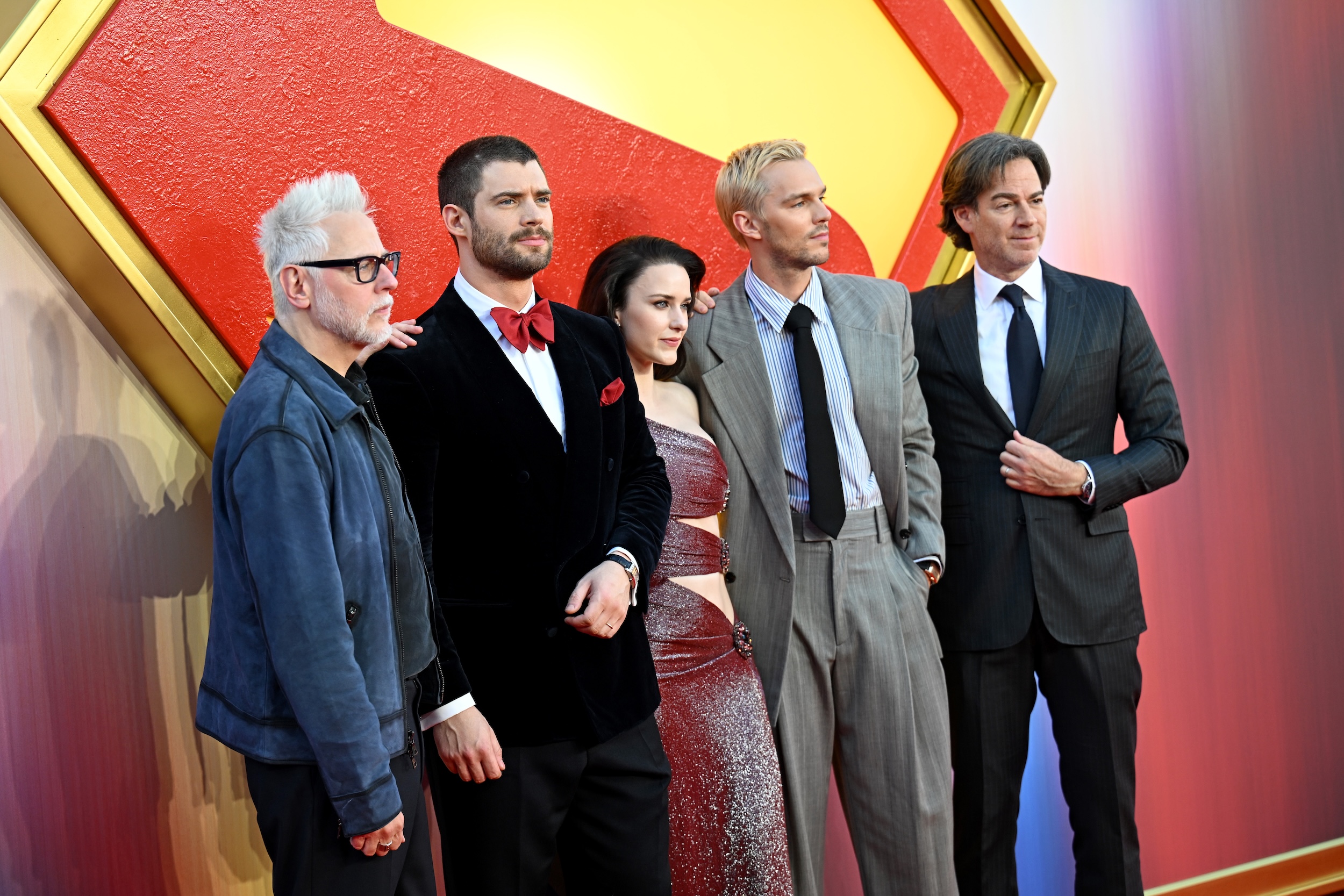The Unintentional Parable of Superman
When audiences left early screenings of James Gunn’s new Superman, many carried more than popcorn and superhero nostalgia—they carried the unmistakable feeling that they had just watched a parable of the Israeli-Palestinian conflict. This reaction, while unexpected, speaks volumes about how deeply the realities of the conflict have permeated global consciousness.
Despite fierce controversy and calls for boycott by some pro-Israel commentators, Superman is topping the box office charts, making over $220 million globally during its opening weekend. Gunn has repeatedly insisted that the film is not about the Middle East. “When I wrote this the Middle Eastern conflict wasn’t happening,” he told The Times of London. He emphasized that the fictional war between Boravia and Jarhanpur was crafted before the Hamas-led attacks on October 7, 2023, and Israel’s ensuing war on Gaza. He even said he tried to steer the narrative away from Middle Eastern analogies once real-world violence erupted. Yet, despite these denials, the allegory has taken hold.
Why the Allegory Resonates
Why? Because the movie’s central dynamic—a powerful, U.S.-backed aggressor invading a poor, largely defenseless neighbor—is all too familiar. Boravia, with its military might, international impunity, and stated mission to “liberate” Jarhanpur from supposed tyranny, mirrors in disturbing ways Israel’s ongoing bombardment and occupation of Gaza. The imagery is searing: tanks and drones lining up at a border fence, a young boy clutching a national flag as civilians scatter in fear, and a so-called “just war” increasingly exposed as a campaign of domination. That such scenes resonated so strongly with viewers is not the fault of the audience’s “left-wing brain,” as Ben Shapiro dismissively put it—it is a reflection of the moral clarity that emerges when oppression is laid bare, even in fictional form.
Online, the reaction was swift and divided. Some called it the most openly pro-Palestine content to ever appear in a blockbuster. TikTok creators, influencers, and activists lauded the film’s unflinching portrayal of invasion and resistance, with one user declaring, “Superman is antizionist and leaves no room for doubt.” Others—particularly in right-wing circles—branded it “Superwoke,” accusing Gunn of injecting ideology into entertainment.
A Cinematic Rorschach Test
Whether or not the film was meant to be about Israel and Palestine, it functioned as a kind of cinematic Rorschach test. When seeing injustice portrayed on the screen, viewers brought with them the images that have been burned into global consciousness after nearly two years of siege on Gaza—images of children killed, hospitals bombed, and international law flouted with impunity. When you witness a conflict where one side wields F-35s and the other buries its dead in mass graves, any story of asymmetrical warfare will inevitably call Palestine to mind.
To be clear, Superman is not a perfect political text. The film’s Jarhanpurians—coded as Middle Eastern or South Asian—are largely passive. One of the few named Jarhanpurian characters is a falafel vendor, Malik, who serves as emotional fuel for Superman’s arc before being killed off. As The Forward noted, the Jarhanpurians’ purpose is less to assert their own dignity than to highlight the hero’s morality. And so, while some audiences saw pro-Palestinian messaging, others rightly questioned whether the film reinscribes a savior narrative—centered on a white alien-immigrant superhero—rather than empowering the oppressed to resist on their own terms.
The Real Heroes Are Not Superheroes
Indeed, as Middle East Eye pointedly observed, Palestinians are not waiting for a white superhero to rescue them. The real heroes are the medics treating the wounded under rubble, the journalists livestreaming amidst bomb blasts, and the people who keep marching for their right to exist. Superman may deliver lines about morality, kindness, and justice, but in the real world, those words are being lived by people with far less privilege and far greater courage.
Still, the film revealed how deeply the public has absorbed the reality of Gaza, how far sympathy for Palestinians has spread beyond Arab or Muslim audiences, and how badly establishment media and politicians have underestimated this shift. When a Warner Brothers tentpole provokes hashtags like “#SupermanIsHamas,” it is not because the film is agitprop—it’s because the world now sees Gaza everywhere.
The Tension of Identity and Values
Even Gunn’s framing of Superman as “an immigrant” touched off fierce debate, with conservative pundits recoiling at the suggestion that a refugee from Krypton could embody the American immigrant story. But that, too, is part of the tension: if Superman is a refugee who stands up to bullies, who uses his power to shield the powerless, then what happens when audiences draw connections between that ethos and the very people being demonized by Western governments?
The film doesn’t just expose geopolitical parallels—it exposes cultural contradictions. America wants to believe in Superman’s values, but recoils when those values are applied consistently, especially when they implicate allies like Israel. It wants to celebrate rebellion in fiction but criminalize resistance in reality. And it wants to embrace immigrants in theory while deporting, detaining, and defunding them in practice.
The Broader Implications
That’s why Superman matters—not because it offers a perfect analogy for Gaza, but because it unintentionally lays bare the moral hypocrisy at the heart of so much political discourse. The discomfort it generates is revealing. When people see children under fire and think immediately of Gaza, the problem isn’t that the film is too political—it’s that reality is too brutal to ignore.
This isn’t the first time a Hollywood film has echoed global struggles, and it won’t be the last. But what’s different now is the speed and intensity with which audiences connect the dots—and the growing unwillingness to let sanitized narratives obscure the truth. Even in the heart of a superhero spectacle, people are demanding moral clarity.
In the end, Gunn may not have set out to make a film about Palestine. But the world saw Gaza in it anyway. And that, in itself, is a kind of justice.







